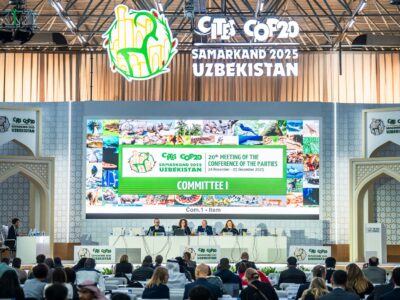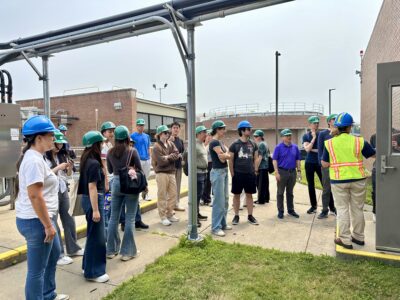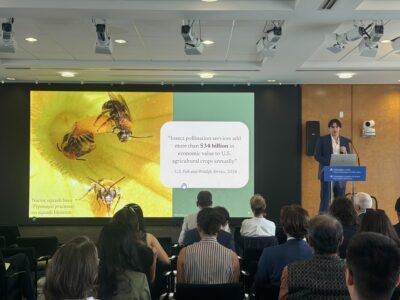
With several years of journalism experience in her native India, MPA ESP candidate Shravya Jain, came to Columbia to learn more about energy and sustainability policies in order to become a policy leader specializing in design, advocacy and negotiation. During her time in the program, Shravya has gained invaluable management experience working with her fellow classmates from diverse backgrounds.
What drew you to the Master of Public Administration in Environmental Science and Policy program (MPA-ESP)?
This course offered everything I considered necessary to become a successful environmental professional. I was looking for a course that would give me a thorough grounding in environmental science and provide me with both quantitative and qualitative policy skills to complement my prior experience in journalism. The MPA-ESP program has met all my expectations.
What were you doing before you started the program?
I was interning with the policy team of SELCO Solar, an award-winning solar company in India promoting sustainable energy in rural areas. Prior to that, I had worked as a reporter for four years, with current affairs magazine India Today and international newswire Thomson Reuters.
What area of environmental policy and management are you most interested in?
I am most interested in energy and sustainability management. My career goal is to be an environmental policy leader specializing in design, advocacy and negotiation.
What skills and tools do you hope to acquire through the program?
I want to become an expert in greenhouse gas inventory management, learn project implementation and develop an in-depth understanding of energy and sustainability policies.
What is your favorite class in the MPA-ESP program, and why?
It’s hard to pick just one class. I tremendously enjoyed the entire summer semester when I took classes in Climatology, Environmental Chemistry and Toxicology. I was apprehensive the subjects would be too technical but the courses were brilliantly taught. The professors broke the science down to basics, which not only aided my understanding but taught me how to communicate effectively on such issues. In the Fall semester, I enjoyed taking the Workshop in Applied Earth Systems Management and an elective about urban energy systems taught by Sergej Mahnovski.
This semester I am very excited to be working on the Greenwave Project, which is a collaborative project between the Masdar Institute of Science and Technology, Abu Dhabi, and MPA-ESP. I’m also looking forward to the Political Economy of Energy and Climate Change Policies class taught by Laurence Tubiana.
How has collaborating with your fellow students in class projects benefited you professionally and personally?
It’s been an extraordinary learning experience as I’ve never before worked with such a diverse and talented group from around the world. I am learning the art of managing teams and being managed, skills I believe will prove useful in any job I take. The group projects have helped create strong personal bonds among us, a source of strength and pride for the entire class.
Beyond the classroom, what, if any, extracurricular sustainability-related activities have you engaged in with your fellow Environmental Science and Policy students?
I established a Twitter profile and a blog for our class to showcase our activities. We used it extensively during the People’s Climate March in September and received a very positive response on Twitter. One of the blogs that had a video and a write-up on our initiative to conduct campus-wide waste audits was featured on the Earth Institute website.
****
Students in the MPA in Environmental Science and Policy program enroll in a year-long, 54-credit program offered at Columbia University’s School of International and Public Affairs, in partnership with the Earth Institute.
Since it began in 2002, the MPA in Environmental Science and Policy program has given students the hands-on experience, and the analytical and decision-making tools to implement effective environmental and sustainable management policies. The program’s 682 graduates have advanced to jobs in domestic and international environmental policy, working in government, private and non-profit sectors. Their work involves issues of sustainability, resource use and global change, in fields focused on air, water, climate, energy efficiency, food, agriculture, transportation and waste management. They work as consultants, advisers, project managers, program directors, policy analysts, teachers, researchers and environmental scientists and engineers.
Visit our website for more information: http://mpaenvironment.ei.columbia.edu/



